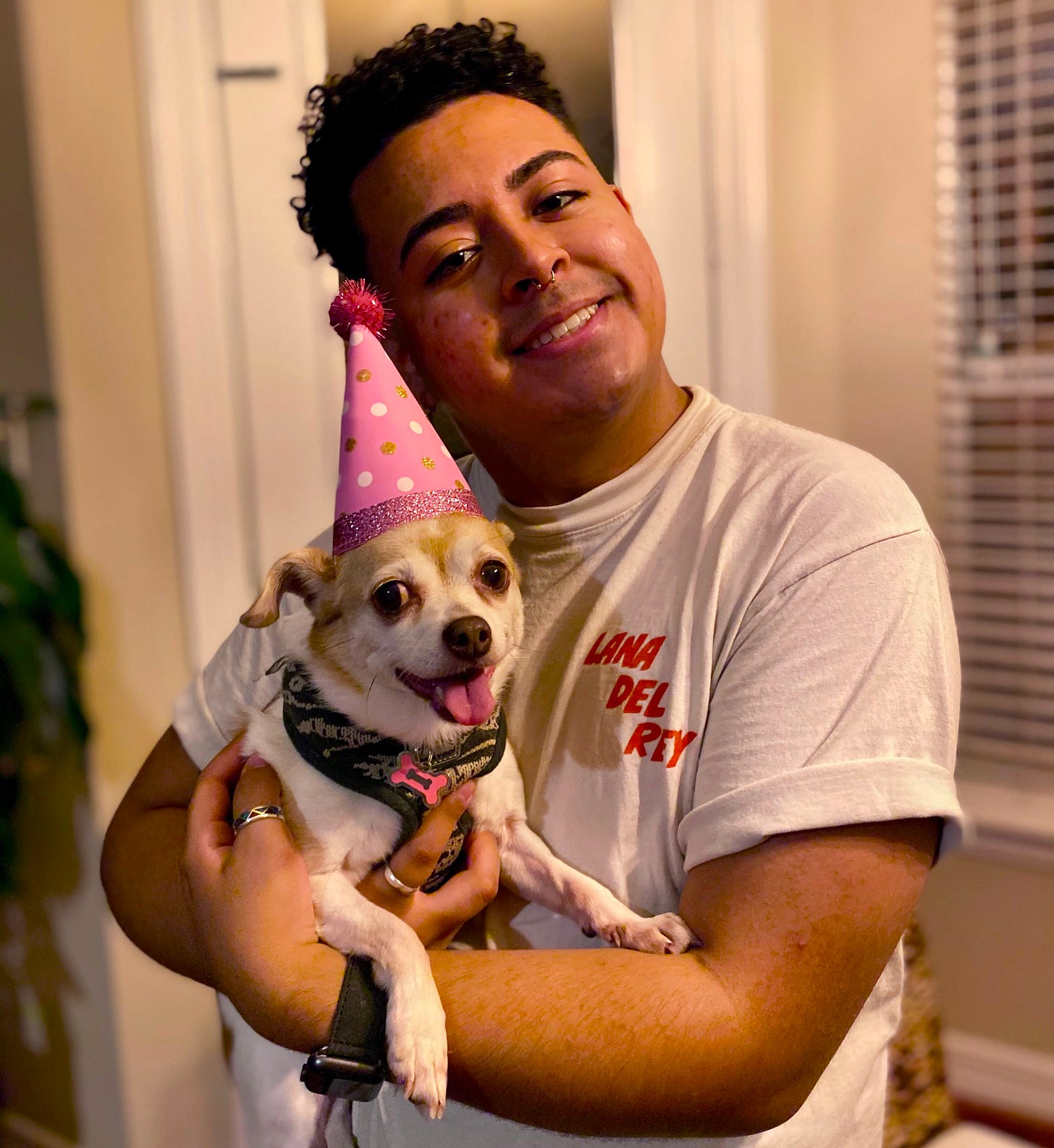Grief paid me a visit on one of the final Saturdays of February, nearly two months after my dog died.
Though it had been a few days since I last thought about Missy in great detail, her death still hung over me like a yellow Sims plumbob. (My mom had recently picked up her cremation box from the veterinarian, which we’ve yet to open.)
I’ve spent a lot of the time since Missy’s death reading up on grief and the ways in which it can manifest in the hope of better understanding what sometimes feels like a war in my mind.
A theme I came across over and over again: Grief will strike at the most random of times and for no apparent reason. It is the ultimate uninvited guest whose sudden appearance at your doorstep you must at the very least acknowledge before deciding if you'll begrudgingly invite them in for a chat or if you'll instead pretend no one's home.
I was in bed, probably watching a dumb cartoon, when Missy popped into my head. I felt an immense urge to go through old photos of her, so I indulged myself with a trip down memory lane; it didn’t take long for me to cry.
It was a bit of a pathetic cry at first, in that the tears dribbled out sluggishly, like water droplets falling from a freshly closed faucet. Still, though, I felt my lips begin to quiver, and I took this as a signal from my body that we needed to loosen the knob a bit.
I hadn't had an intense cry since about a week or two after Missy's death. I had steeled myself from the pain of losing her because I was afraid surrendering even an inch to it would destroy me. There were many instances when grief knocked on my door and I shut the blinds, turned off the lights, and sought distractions to redirect my focus.
On this particular Saturday, I asked myself: Why are you so afraid to let go? Why are you fighting it? How does this benefit you? I couldn’t think of any satisfactory answers, and I felt the guardrails lift in real time. I stopped stifling my cry, and I embraced the sorrow with open arms.
“She's gone,” I thought to myself. “She's really gone, and I will never see her again.”
I began repeating this statement like a mantra, letting sink in the finality of it all. She’s gone. I’ll never see her again. She’s gone. I’ll never see her again. She’s gone. I’ll never see her again. I just sat with the discomfort and sobbed and sobbed, deeper and deeper, releasing everything I had kept bottled up.
I’m not sure how long I stayed like this. But after some time had passed, a new feeling started bubbling toward the surface, and the mantra slowly changed: She’s gone. I’ll never see her again. She’s gone. I’ll never see her again. But I’ll be okay. She’s gone. I’ll never see her again. She’s gone. I’ll never see her again. She’s gone. I’ll never see her again. But I’ll be okay. She’s gone. I’ll never see her again. But I’ll be okay.
Upon recognizing this shift in thought, I felt a profound sense of comfort and relief envelop me like a blinding white light. I’ve never experienced anything like it. It was as if I was on an expedition to the center of the Earth, and after years of digging through endless mantle, I had finally pierced the outer core.
The pain of losing Missy was still there, but purified of radioactivity, in a sense; I could engage with it without fear of being burned. No longer did her absence overwhelm me with existential dread; instead, it filled me with gratitude for the memories I shared with her. It dawned on me that this meant I had accepted her death, or that I was at the very least making significant strides toward doing so.
As I reflect on this moment one month later, I’m struck by the simple fact that it’s something I accomplished entirely on my own. In my despair, I was somehow able to tap into an inner power I didn’t even know I possessed. A power that gave me the strength to confront my grief head-on rather than run from it. The strength to let love, and not fear, propel me forward.
I have Missy to thank for this discovery. It is her final gift to me, and I will carry it with me always.





